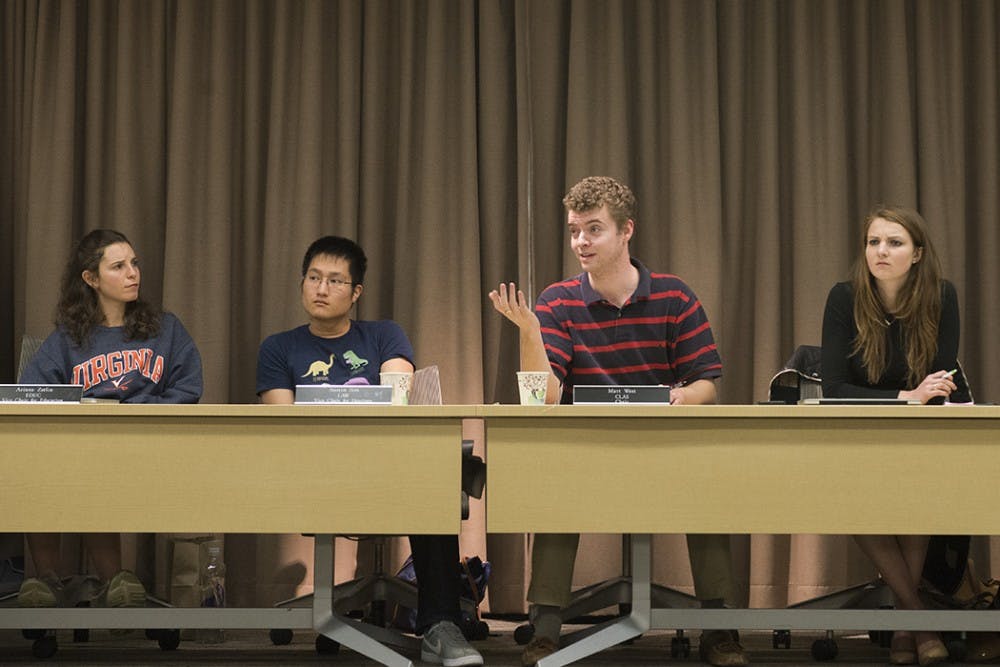After deciding not to take a single stance as an organization, members of the Honor Committee have published their individual opinions of a referendum that would affect the Committee’s constitution if successful. Of the 27-person Honor Committee, 18 members plan to vote “no” and nine plan to vote “yes” on the amendment, which proposes to lower the threshold of support necessary to amend the Honor Constitution in University-wide referendums.
Fourth-year College students Nathan Gonzalez and VJ Jenkins, an Honor Committee representative, authored the "Democratization Amendment,” which proposes to lower the amount of support needed to amend the Honor Constitution in a referendum from 60 percent to 55 percent of the vote. In order for an amendment to pass, 10 percent of students eligible to vote must vote in favor of the amendment. The “Democratization Amendment” would not change this 10 percent requirement.
Each member of the Honor Committee published a statement online last week explaining their vote and the reasons behind their decision.
In her statement, Architecture graduate student Caroline Herre, an Honor Committee representative, said she will be voting against the measure.
“I'll be voting to keep 60 percent simply because I believe that the supermajority is reasonable and sound,” Herre wrote. “Since I've been a student, six binding constitutional amendments have come up for a vote, and four of them have passed.”
In an interview with The Cavalier Daily, Herre said she sees the amendment as a proxy for a discussion about multiple sanctions.
“The multi-sanction conversation will never be over,” Herre said. “Sanctioning is at the core of Honor’s judicial process. So the fact that we have so many students that are excited to talk about sanctioning as it relates to lying, cheating and stealing is fantastic to me.”
Last spring, the student body voted on a proposed amendment that would have allowed the Committee to incorporate a multi-sanction system into its bylaws, whereby students would not necessarily be expelled after being convicted of an Honor offense. The amendment fell just short of reaching the required 60 percent support threshold with 58.8 percent of the vote in the referendum.
Stephanie Roe, an Honor Committee representative and College graduate student, cited last year’s referendum in her statement of support for this year’s proposed amendment.
“[58.8 percent] wasn't enough to effect a change to our constitution,” Roe said in her statement. “I believe that reducing the required majority from 60 percent to 55 percent to make constitutional changes will help in making the process of student governing more efficient and effective in reflecting the will of the student body.”
Other supporters of the amendment said it would give students more representation in the Honor system.
“This amendment gives the student body a greater power in enacting change within the Honor community,” Alison Stickel, a fourth-year Curry student and Honor Committee member, said in her statement. “The University’s Honor [system] aims to promote a community of trust, therefore a community that can be trusted with responsibility make appropriate changes.”
Honor Committee Chair Matt West, a fourth-year College student, said he does not support the amendment, but respects the opinions of all Committee members, regardless of how they are voting.
“I think there is a vocal and well-organized group of students who strongly support the amendment and have done a very good job in my opinion of promoting the proposal and encouraging students to vote yes,” West said in an interview with The Cavalier Daily. “On the other side of the debate, I’ve spoken to many other students who share the concerns members of the Committee have expressed on the amendment and the fact that this could undermine constitutional protections for voters who happen to find themselves in the minority on a question.”
West also said there has been debate over raising the 10 percent student participation requirement to better reflect University opinion.
“There’s been a lot of discussion about whether or not the 10 percent floor … is too low and does not effectively promote active participation,” West said. “On these important questions regarding amendments, that’s another topic that future committees and students in years to come may continue to consider. I fully expect that this conversation will not completely go away if the amendment doesn’t pass.”
Voting on the referendum started Tuesday, Feb. 21 and will close Thursday, Feb. 23.







